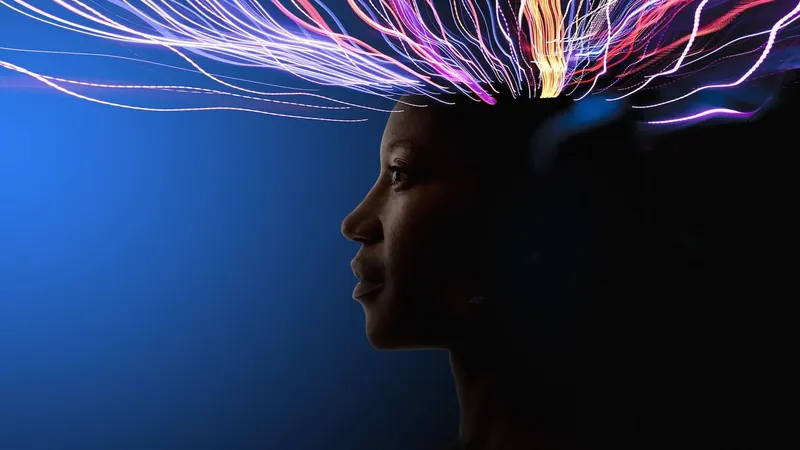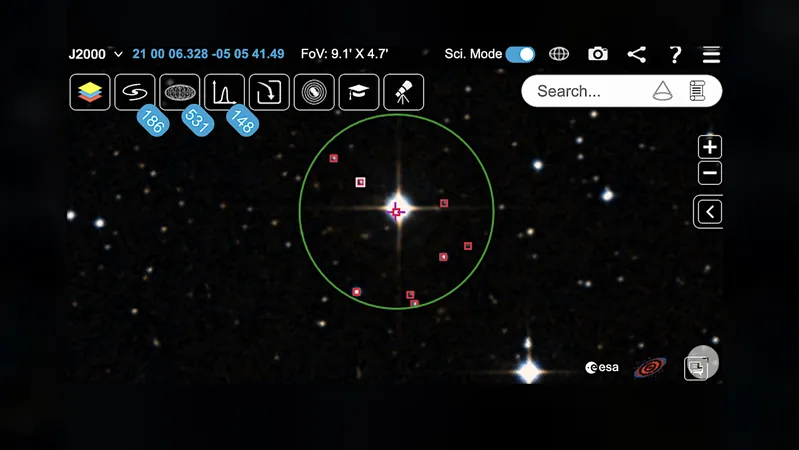
Groundbreaking Study Uncovers How Our Brains Frame Daily Events Like Movie Scenes!
2024-10-09
Author: Rajesh
Introduction
Recent brain scans have provided fascinating insights into a fundamental mystery: the way our memory organizes daily experiences. Much like a film is divided into scenes, neuroscientists now believe our brains categorize our daily lives into distinct segments—like separating the fun of lunchtime from the routine of coming home after work. Yet, unlike films where directors determine scene transitions, this new research suggests our brains may hold the reins on these shifts.
The Study
The study, published on October 3 in *Current Biology*, reveals that rather than solely relying on changes in the environment to mark the end of one
scene
and the start of another, we have more control than previously imagined. Senior study author Christopher Baldassano, an associate psychology professor at Columbia University, and his team investigated how our brains delineate boundaries during different events and experiences.
Traditional Beliefs vs. New Insights
Traditionally, scientists believed these boundaries were created by significant environmental shifts, for instance, entering a bustling café or a quiet lecture hall. However, a competing theory proposes that our individual experiences and emotional responses to certain events also play a crucial role in this process. Simply put, while the environment can influence how we segment our day, our personal priorities and goals may override these external cues.
Methodology of the Research
To delve deeper into this intriguing hypothesis, Baldassano's team constructed 16 short audio narratives, featuring various locations—like restaurants and grocery stores—and social scenarios, including business deals and breakups. Participants listened to these narratives while undergoing Functional Magnetic Resonance Imaging (fMRI), allowing researchers to observe real-time brain activity, specifically in the medial prefrontal cortex (mPFC), known for its role in interpreting our surroundings.
Key Findings
What they found was illuminating: mPFC activity spiked during key moments of social change within the narratives—like the conclusion of a business deal or the acceptance of a marriage proposal. However, when participants were instructed to focus on specific environmental details—such as ordering at a restaurant—their mental segmentation of the events shifted accordingly, altering both their brain activity and memory recall afterward.
Impact on Memory Recall
The study also demonstrated participants' varying ability to recall details based on their focus during the narrative. Those who were prompted to consider certain elements often struggled to remember unrelated components of the story. This flexibility in memory indicates that our mindset significantly influences the stories we recount, as noted by Baldassano.
Therapeutic Implications
Excitingly, this research suggests that we possess a remarkable ability to construct and control the narratives of our own lives. "Depending on how we approach experiences, our memory can dramatically shift, allowing us to emphasize specific details while omitting others," Baldassano stated.
Further Research Directions
Furthermore, researchers uncovered that difficulties in segmenting events are prevalent in conditions such as PTSD, dementia, and even normal aging. This finding prompts potential for memory-based therapies that focus not just on narrative shifts, but on directing attention to key moments that encapsulate life’s essence.
Expert Opinions
Looking ahead, scholars like David Clewett from UCLA, who was not part of the study, suggest that acknowledging how we frame our memories is crucial. “Our findings can inform therapies aimed at enhancing memory by honing in on pivotal moments that resonate with individuals,” he said.
Conclusion and Future Perspectives
Ultimately, the researchers are eager to explore the effects of consciously shifting attention on long-term memory and how this could affect personal narratives. “What if individuals were encouraged to freely share their memories? How would this shift their perception of their experiences?” Baldassano mused.
The study unravels exciting possibilities about memory's intricate nature and how we frame our everyday lives. It raises the question: Are we the directors of our own life's narrative?


 Brasil (PT)
Brasil (PT)
 Canada (EN)
Canada (EN)
 Chile (ES)
Chile (ES)
 España (ES)
España (ES)
 France (FR)
France (FR)
 Hong Kong (EN)
Hong Kong (EN)
 Italia (IT)
Italia (IT)
 日本 (JA)
日本 (JA)
 Magyarország (HU)
Magyarország (HU)
 Norge (NO)
Norge (NO)
 Polska (PL)
Polska (PL)
 Schweiz (DE)
Schweiz (DE)
 Singapore (EN)
Singapore (EN)
 Sverige (SV)
Sverige (SV)
 Suomi (FI)
Suomi (FI)
 Türkiye (TR)
Türkiye (TR)